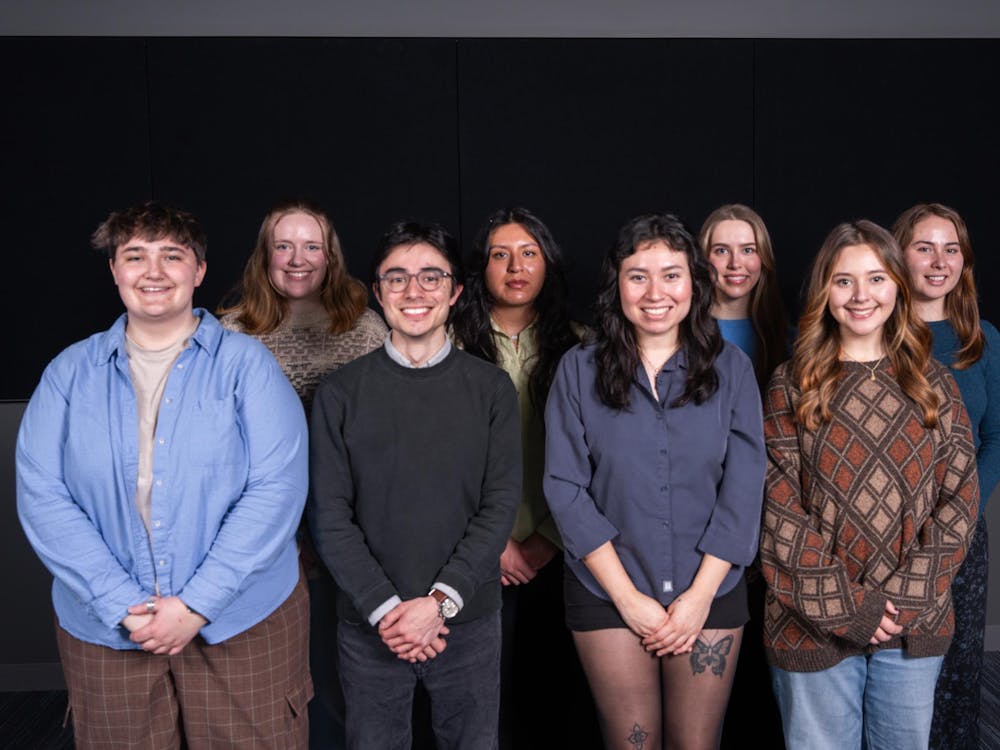(The Beacon)
By
In February, a group of UP students dubbed Redefine Purple Pride commanded the attention of the administration.
Their online petition addressed to Fr. Beauchamp and the Board of Regents called on the University to change the Nondiscrimination Policy to include sexual orientation and gender identity.
Their demonstration included about 100 people, including faculty, marching in front of Waldschmidt, making it impossible for the University to ignore their cause.
If there is any time for the University to listen, it is now.
It took 100 students marching for something better and more than 1,000 signatures on the petition, but finally, the University is listening.
The Ad Hoc Presidential Advisory Committee on Inclusion (PACI), composed of faculty, staff and students, has hosted three community listening sessions, with another this evening, to hear what students think are the problems at UP and what can be done to achieve a more inclusive and diverse environment here.
Three happened earlier this week, and the last takes place today.
The Ad Hoc PACI will take the testimony gathered from the UP community back to Fr. Beauchamp and his leadership cabinet for consideration.
The first two sessions - one for staff and one for students - were held this week. The student session was attended by about 20 people.
Yet, as ASUP is throwing its support behind changing the Nondiscrimination Policy to include sexual orientation and gender identity with Resolution 13-06, administrators declined to meet with them to discuss the legal ramifications of the resolution becoming a reality.
With the absence of the administration's input, ASUP expects to vote on this resolution during their next meeting.
They are also currently in the process of discussing Resolution 13-10, which asks for an Office of Inclusion on campus - a safe place where students can talk to trained professionals about issues they have concerning discrimination, inclusion and diversity.
Clearly, the students care about this issue.
Clearly, the staff and faculty who attended listening sessions care about this issue.
And finally, the University is listening.
They are making an effort to see why some students feel that the residence halls are not inclusive or welcoming of diverse groups.
To see why some students feel silenced by the inappropriate comments made in class by some professors and laughed at by students.
To see why some students think diversity is barely acknowledged at this school.
To see why some staff and faculty share these feelings.
The University is listening, and its community has a lot to say about what needs to change.
We only hope that the University doesn't stop with just listening - that they take what they learn and turn it into changes at this school that will address the needs students, faculty and staff alike have expressed.
Students have united over the issue of the Nondiscrimination Policy like never before at UP.
There has been a petition, a demonstration and student government support.
Students have shared their own thoughts about diversity at UP, and they don't stop at changing the Nondiscrimination Policy. Students and staff at UP want a campus that is more inclusive of all the school's diverse community members.
The Ad Hoc PACI is listening, and we hope that administration and the Board of Regents respond with more than just an open ear, but with action.
The time for change is now more than ever before.
Listening is the first step, but it doesn't stop there.
Editorial Policy The editorial reflects the majority view of The Beacon Editorial Board. The editorial does not necessarily reflect the opinions of the collective staff or the Administration of the University of Portland. Other submissions in this section are signed commentaries that reflect the opinion of the individual writer. The Student Media Committee, providing recommendation to the publisher, oversees the general operation of the newspaper. Policy set by the committee and publisher dictates that the responsibility for the newspaper's editorial and advertising content lies solely in the hands of its student employees.







